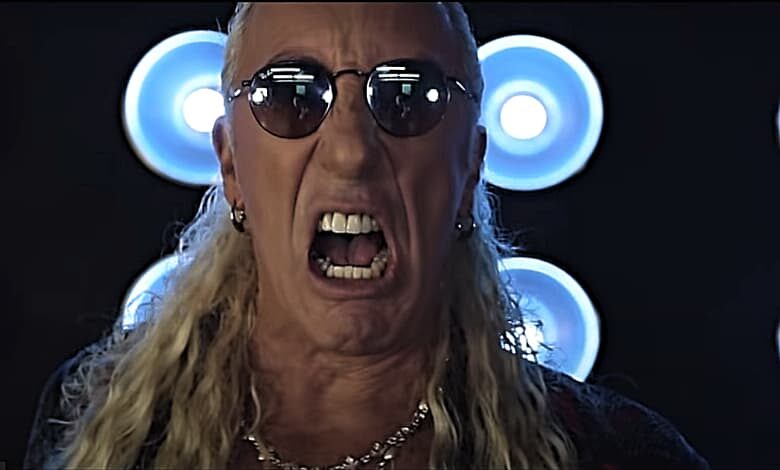Here’s What Dee Snider Misses About Cancel Culture 2.0
Rocker raises good points but ignores why his free speech fight differs from today

Dee Snider wasn’t gonna take it … anymore.
The Twisted Sister front man took efforts to label rock music seriously in the mid-1980s, and understandably so. His brand of heavy metal thunder came under attack from a subset of the era’s Moral Majority, a faith-based movement seeking to label inappropriate music.
That movement had some bipartisan support, chiefly thanks to Tipper Gore. The wife of then-Senator and future Vice President Al Gore led the charge via the Parents Music Resource Council. The group featured the wives of other senators, cabinet members and more, and it ordered a “voluntary” system of warning labels for outrageous rock and rap records.
The banter flowing from this Beltway bunch, though, suggested labeling wouldn’t be enough.
Enter the most unlikely trio in music history – Snider, country crooner John Denver and Frank Zappa. The musicians testified on Capitol Hill against the labeling measure, warning America what such a move could mean for artists in general.
They lost the labeling fight, but in a way won the larger war. Singers could keep singing virtually anything they wanted assuming members of the public were open to buying it.
Need proof? Here you go.
Those culture war battles cooled over the next two decades, but the current Cancel Culture fight finds them atop the headlines again. So it’s only natural that an interviewer would ask Snider to revisit the issue and compare what he faced then to what’s happening now.
Snider wisely connected the two eras and their attempts to pin artists under fuzzy, inconsistent mandates. It’s the kind of context often missing from the current woke debate. The censorial passion flowed mostly from the Right back in the 1980s, with rock liberals fighting to retain their right to free expression.
My, how things have changed.
Snider opened up about then, and now, during a heavy metal chat with Metal Wani.
“Censorship, it always existed. People have always been trying to limit art and control art, and reel it in, and potty-train it, as Frank Zappa said, and as a friend of mine once said, the art has always pushed back.
“I kind of feel sorry for the people who are trying to stem the tide of trying to censor things, because every time they give us an inch, we push further, and if you look where we are today with censorship, you think back to a hundred years ago to Puritan times.
Snider labeled the ’80s version of this effort as “very right wing, conservative … and puritanical,” a far cry from the Cancel Culture club of today. That, Snider warns, is full of “left-wing hypersensitivity, PC world censorship.”
“We’ve got people going, ‘You can’t say that because that offends people, and that offends people…’ It wasn’t about offending people back in those days, it was just, ‘You can’t say that.’
“Now, we have to protect the young, this is, ‘That’s offensive.’ So there’s this hypersensitivity, hyper-defensive, hyper-protective, and it’s censorship just the same.
He says Cancel Culture crossed his mind while writing his latest album, “Leave a Scar,” but he pushed any fears of offending someone out of his head to get the record done.
“When I was writing the song ‘In for the Kill,’ I found myself going, ‘Oh, wait a minute, ‘In for the Kill,’ ‘Fire at Will,’ people might be upset about that…’
“And then the louder voice in my head said, ‘What are you doing?! You’re censoring yourself because you’re going to offend them? Let the lawyers tell you after you’ve written the song if we can’t put it down in the album…’
Artists will always fight these battles, he says.
“…it sucks that we’re still dealing with that, but I think it’s going to be an ongoing battle for eternity.”
What did Snider leave out?
Yes, conservatives had a powerful, popular figure in the White House during the 1980s — President Ronald Reagan. That likely emboldened those outraged by raunchy, kid-unfriendly tracks.
That’s a far cry from the current cultural landscape. The modern Left, fully on board with censorship across the culture, controls all the major institutions:
- The presidency
- Journalism
- Hollywood
- Big Tech
- Academia
- Corporate USA
That kind of power eluded the censorial Right back in the 1980s, especially since platforms like Facebook and Twitter didn’t exist at the time. Big Tech is firmly in the grasp of the Modern Left, and they aren’t afraid to use it.
The Religious Right fought to protect children from inappropriate material via the PMRC skirmishes. Today’s censors don’t blink an eye at W.A.P. or like-minded fare. They want to censor thoughts they deem beyond the pale, stifle debate and protect narratives they call essential.
It’s far more restrictive than what we lived through in the 1980s, and the worst may be yet to come.
Snider, unlike his old chum Howard Stern, hasn’t abandoned the fight for free speech. He still should be aware of the bigger picture while comparing the ’80s to today.
It’s vastly different, and too many modern rockers would rather genuflect to the woke mob than take a stand.
Snider did just that 36 years ago, and for that artists everywhere should be grateful. It’s a shame we may need him to perform a cultural encore sooner than later.
